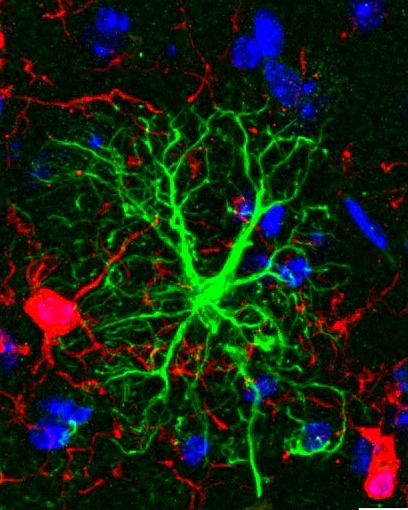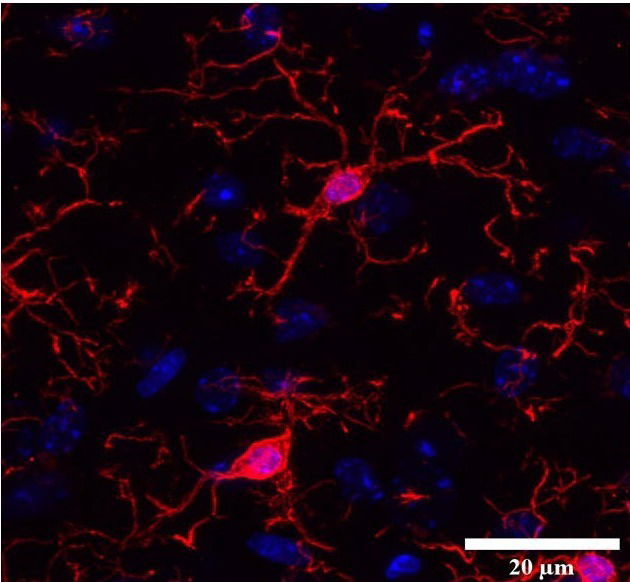Research


(Image credits: Sunny, TIFRH )
We have a keen interest in exploring the biological functions of innate immune cells in the brain. Microglia, the innate immune cells residing in the brain, play a role in shaping neuronal circuits as the brain develops. These cells can also spark neuroinflammation and the death of neuronal cells in the context of aging and neurodegenerative conditions like Alzheimer's disease (AD), Multiple Sclerosis (MS), and more. In our laboratory, we utilize an integrated research approach, merging techniques from chemistry, chemical biology, synthetic biology, immunology, and neuroscience, to explore and influence the role of microglial cells in both health and disease.
The primary research areas we are currently focusing on are:
In our research, we employ 2D and 3D co-culture systems, iPSCs, human cerebral organoids, and mice as model systems. To observe the real-time movements and roles of immune cells in living organisms, we utilize advanced fluorescence microscopy and complete animal imaging methods.
We have a keen interest in exploring the biological functions of innate immune cells in the brain. Microglia, the innate immune cells residing in the brain, play a role in shaping neuronal circuits as the brain develops. These cells can also spark neuroinflammation and the death of neuronal cells in the context of aging and neurodegenerative conditions like Alzheimer's disease (AD), Multiple Sclerosis (MS), and more. In our laboratory, we utilize an integrated research approach, merging techniques from chemistry, chemical biology, synthetic biology, immunology, and neuroscience, to explore and influence the role of microglial cells in both health and disease.
The primary research areas we are currently focusing on are:
- Design and development of new chemical and genetic tools for studying microglia and macrophages in vivo.
- Chemical biology approaches to reprogram harmful microglial cells in the central nervous system.
- Mechanistic investigations of microglial activation and immune suppression.
- Synapse modulation.
In our research, we employ 2D and 3D co-culture systems, iPSCs, human cerebral organoids, and mice as model systems. To observe the real-time movements and roles of immune cells in living organisms, we utilize advanced fluorescence microscopy and complete animal imaging methods.